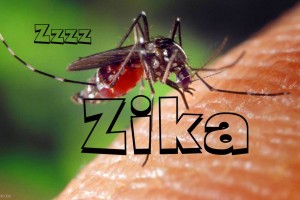- Home
- Editorial
- News
- Practice Guidelines
- Anesthesiology Guidelines
- Cancer Guidelines
- Cardiac Sciences Guidelines
- Critical Care Guidelines
- Dentistry Guidelines
- Dermatology Guidelines
- Diabetes and Endo Guidelines
- Diagnostics Guidelines
- ENT Guidelines
- Featured Practice Guidelines
- Gastroenterology Guidelines
- Geriatrics Guidelines
- Medicine Guidelines
- Nephrology Guidelines
- Neurosciences Guidelines
- Obs and Gynae Guidelines
- Ophthalmology Guidelines
- Orthopaedics Guidelines
- Paediatrics Guidelines
- Psychiatry Guidelines
- Pulmonology Guidelines
- Radiology Guidelines
- Surgery Guidelines
- Urology Guidelines
Take decisive action against Zika: WHO to Southeast Asian nations

The World Health Organisation (WHO) urged countries across the Southeast Asia region to continue taking decisive action against Zika virus as two new cases of Zika-related microcephaly were confirmed in Thailand.
"Zika virus infection is a serious threat to the health and well being of a pregnant woman and her unborn child. Countries across the region must continue to strengthen measures aimed at preventing, detecting and responding to Zika virus transmission," said a WHO Southeast Asian region office (WHO-SEARO) statement here.
According to the organisation, the presence of Zika in Southeast Asia has been documented in recent years, including from Thailand, Indonesia, Maldives and Bangladesh.
"Thai authorities have been active in detecting and responding to Zika. Thailand's diligence underscores the commitment of health authorities to the health and well being of the Thai public, and provides a positive example to be emulated," said the statement.
Suggesting correct counselling for regions with active transmission of Zika virus, WHO has recommended safer sex or abstinence for a period of six months for men and women who returned from areas of active transmission, whether they are trying to conceive or not.
The global health organisation said it has been working with countries across the region to strengthen Zika virus and birth defect surveillance, enhance vector surveillance and control, scale-up laboratory capacity and amplify risk communication and community engagement.
"All countries now have the laboratory capacity to conduct Zika virus testing, as well as to assess and identify microcephaly cases," it said, adding that controlling mosquito population is crucial to diminishing Zika virus transmission, as well as the transmission of other vector-borne diseases such as dengue and chikungunya.
"Alongside government efforts, householders are encouraged to disrupt standing water that can gather in gutters, pot plants and spare or discarded tires and to dispose off household waste in sealed plastic bags," said the statement.
The organisation has also said that based on available evidence, WHO does not recommend trade or travel restrictions with countries, areas and/or territories with Zika virus transmission.
"Travellers to areas with Zika virus outbreaks should seek up-to-date advice on potential risks and appropriate measures to reduce the possibility of exposure to mosquito bites and sexual transmission of the virus," the WHO said.
It said that pregnant women should be advised not to travel to areas of ongoing Zika virus transmission.
Pregnant women's sexual partners living in or returning from areas with Zika virus outbreaks should ensure safer sex or abstain from it for the duration of their partner's pregnancy.

Disclaimer: This site is primarily intended for healthcare professionals. Any content/information on this website does not replace the advice of medical and/or health professionals and should not be construed as medical/diagnostic advice/endorsement or prescription. Use of this site is subject to our terms of use, privacy policy, advertisement policy. © 2020 Minerva Medical Treatment Pvt Ltd